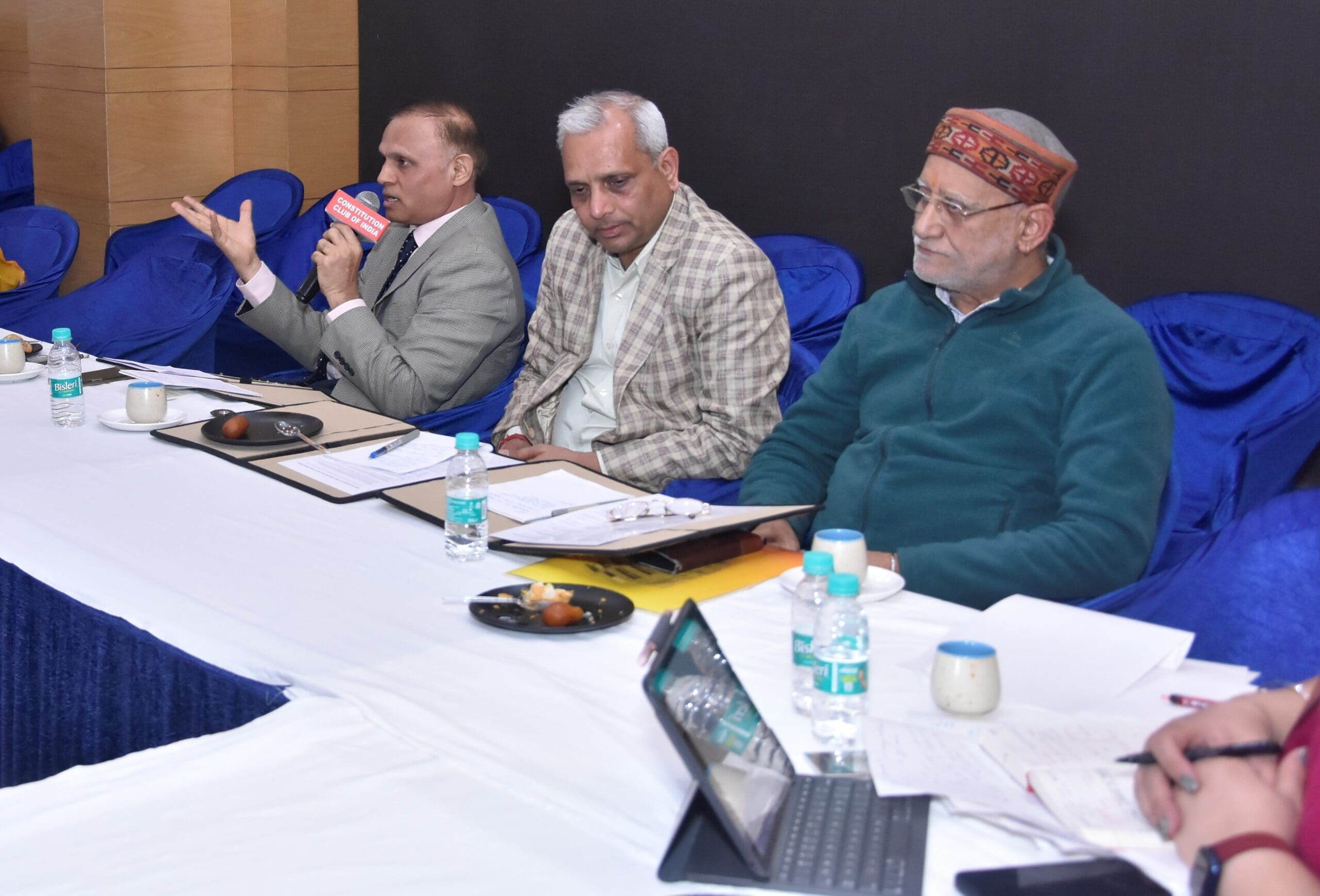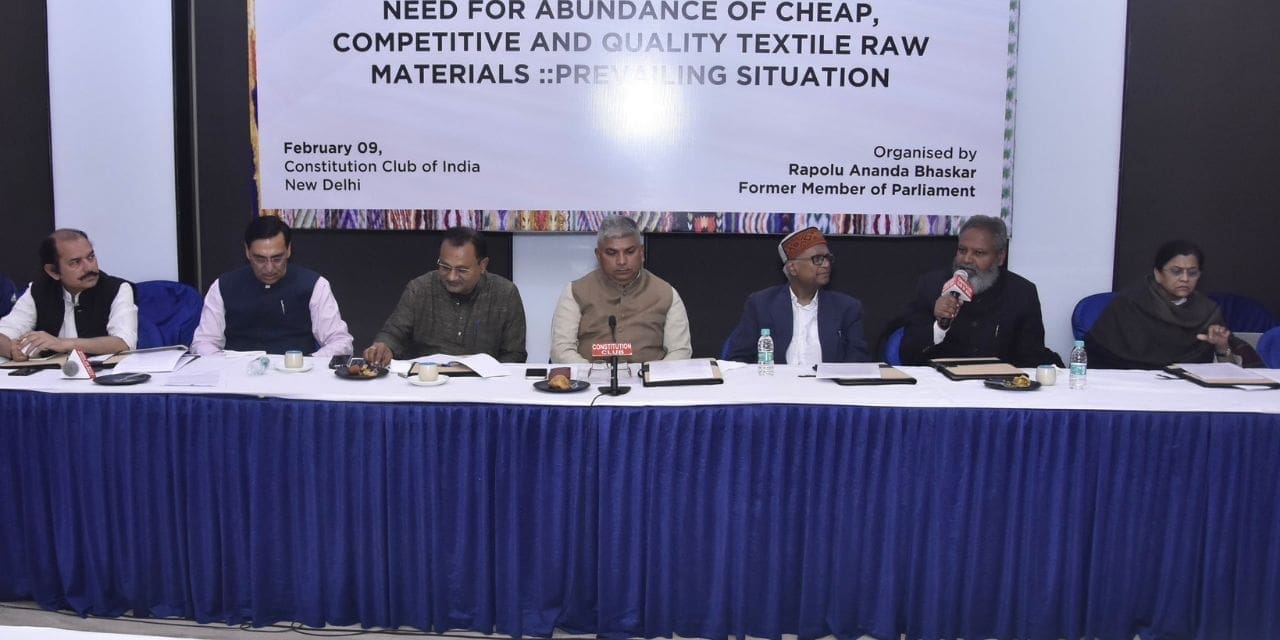Shri Ananda Bhaskar Rapolu, Ex-MP, organised a roundtable at the Constitution Club of India, New Delhi, recently to discuss and deliberate on the scarcity of the various man-made and natural fibres in the country. The dignitaries included parliamentarians from BJP, INC, DMK, SO and others, along with industry representatives from different parts of the country. They joined the discussion to share their perspectives on the consequences of the scarcity of raw materials and the impact of potential duty impositions, such as the Anti-Dumping Duty, on the sector.
With the market share of India in the global textile industry increasing, there is also a need to ensure that there is abundant availability of raw materials like fibre in the country. Although India is the 2nd largest producer of man-made fibre/yarns and polyester, there is a huge supply-demand deficit, especially in viscose. Dwindling cotton supply, low cost, and versatility in design/application are key drivers for man-made fibre adoption.
In FY 2021-22, the domestic Viscose Staple Fibre (VSF) demand was 7 lakh tonnes, and the availability was only 5.4 lakh tonnes, which is a gap of 1,60,000 tonnes/year. With only one major viscose supplier contributing to over 90% of the supply, India’s entire value chain depends on a single manufacturer. This creates big risks for users. As a result, many small spinners cannot access Viscose as the supply is limited to select spinners only. 
The dignitaries highlighted the above challenges in the current situation of India’s weaving sector. They further deliberated on the solutions to ensure that there is access to abundant and high-quality raw materials for the downstream community at cheap rates. Some of the suggestions included the non-imposition of duties (like anti-dumping duty) on raw materials such as polyester and viscose and building mechanisms to ensure there is no pricing policy that puts Indian weavers and spinners at a disadvantage.
Reflecting and summarising the discussion, Shri Rapolu highlighted that there is a need for an encouraging ecosystem to enlarge the capacities of fibre to fabric. Ensuring sufficient fibre/yarn availability is critical for the labour-intensive textile value chain that generates over 45 million in employment, mostly rural poor and women. He further emphasised that viscose is poor people’s silk, and viscose blended cotton is the future.
Inconsistent policy decisions on raw materials will only ruin the chance of participation for the small-scale spinning and weaving industries. Hence, concentrated efforts are needed to ensure an ecosystem that safeguards healthy and fair competition in the market, enabling the availability of quality raw materials for value addition. The parliamentarians and industry representatives came to a consensus that they shall take this discussion forward to the concerned offices.

